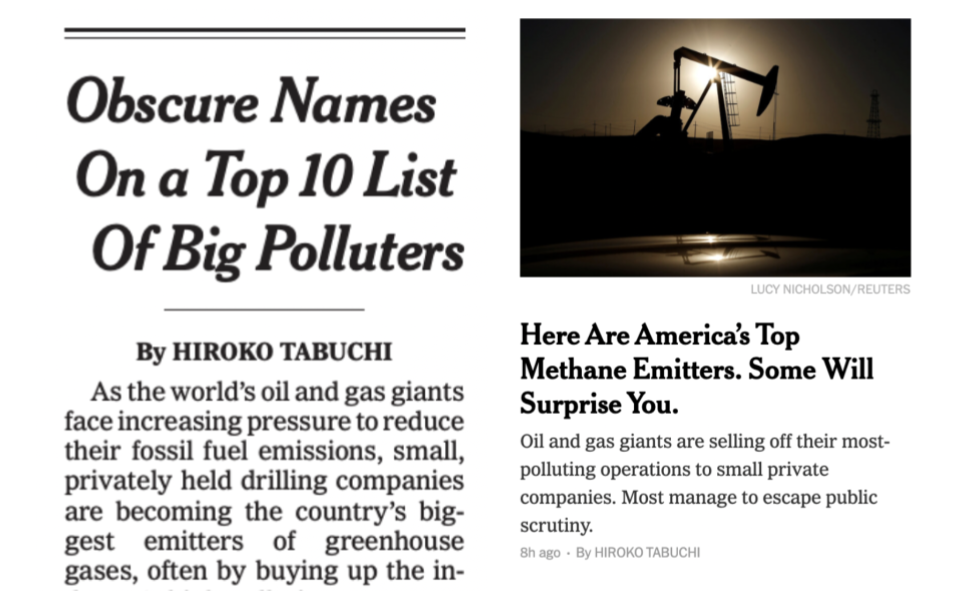Out of Scope Issue 18: Hot takes, rainbow washing, and the buzz on BeeTok
This week’s non-required thinking on reputation, business, and culture
This week, action communications take center stage from UNC to the French Open. Nestle’s attempt to rebrand as a health-conscious brand is quashed by an internal report, Venmo responds to a Buzzfeed story with a privacy policy change, and brands around the world go rainbow for Pride Month. Let’s dive in!
📡 ON OUR RADAR
This week in rebrands that probably cost some serious cash and took all of three minutes to dream up: “Warner Bros. Discovery” and ABC’s “new” logo.
An irresponsible use of a viral platform? Shocker. TikTok’s “bee lady” sparked controversy among other beekeepers and entomologists for using her platform to spread misleading information about how to safely interact with swarms of bees, which could influence viewers into engaging in potentially life-threatening situations with bees in real life.
The great American debate: alcohol’s reputation. This piece by The Atlantic details how Americans’ perception of drinking has always swung between extremes — one minute we’re condoning alcohol consumption as “liquid inspiration” and the next we’re taking severe measures to abstain. It’s a good read on how we as a society communicate about alcohol and a reminder that context is key.
Turns out Twitter’s “Read before you Retweet” feature works! The prompts, which ask people to read stories before re-tweeting them, resulted in 40% more article opens.
Nestle’s in crunch time. This week the Financial Times reported on an internal presentation circulated among Nestle’s top executives that shows that 60% of the company’s food and beverage portfolio is not considered healthy by global standards. For a company whose former CEO tried to position it as “a nutrition, health and wellness company”, this admission is bad news bears for their comms team. It’ll be interesting to see how their new nutrition strategy comes together, which Nestle announced in response to the article.
A lesson in how to write clickbait. Turns out headlines online really do work differently than they do in print:
Think of Chamath Palihapitiya when you think of SPACs. Former Facebook executive turned SPAC oracle, Chamath Palihapitiya, leverages candor to create a public persona that continues to elevate his influence and inspire new investors. The surest path to building brand awareness? Show some personality.
Even “legitimate businessmen” need a good business strategy. This week, an executive for a cyber-intelligence company had some advice for businesses negotiating with ransomware attackers: don’t refer to them as “bad guys.” He says, “As long as you pretend with them that this is just a normal business transaction, it goes better.” With the onslaught of cyberattacks reported over the past few weeks, will this method of reframing the situation continue to find success?
Worried about the fallout from a customer complaint? Take heart. Archeologists recently found and translated a 300-word inscription made in 1750 BC that appears to be a customer complaint... Those angry tweets might linger, but at least they’re not carved in stone.
Once again, it’s not only the Windsors who are royals with a reputation problem. The ruling family of the Zulu kingdom is squabbling over which of the 20-odd heirs to the late king will get the crown, and the population of South Africa, who fund the family with a government subsidy, are not enjoying the spectacle.
A few weeks ago, the Buzzfeed News team revealed that they were able to find President Biden’s secret Venmo account in under 10 minutes. Since the article was published, Venmo very quietly released a settings feature requiring users to manually make their friend lists private in the setting menu. This might have been a perfect opportunity for a large banking app to earn honesty points with their customers, but Venmo went for the quiet update.
Over at UNC’s School of Journalism, Pulitzer Prize-winning essayist Nikole Hannah-Jones (known for her work on the NYT 1619 Project) was up for the prestigious position of Knight Chair in Race and Investigative Journalism but was denied tenure after the school’s largest donor questioned whether she would “distract” from the school’s values. Actions can speak louder than words - and already, the university’s new reputation has cost them a hire for their chemistry department. Is it cancel culture or is it a defense of academic integrity? Either way, “action communications” have consequences:


🏆 REPUTATION FAIL OF THE WEEK: The French Open
Naomi Osaka made a fierce power move on Monday when she officially dropped out of the French Open amidst the controversy surrounding her decision to opt out of the Grand Slam’s press. In her announcement, the 23-year-old opened up about her struggles with social anxiety and depression as part of her withdrawal from the French Open. She also explained how she’s open to working with the Tour to improve media relations for the players, press and fans “when the time is right.”
The French Open itself mocked Naomi Osaka's media blackout on Twitter, and ultimately pushed her towards completely withdrawing by issuing a $15,000 fine and a threat to suspend her from future Grand Slam events.
The entire incident created shock waves throughout the tennis world and beyond. Some argue press is an indispensable part of playing the sport at a professional level. Others (including notable sponsors such as Nike, Sweetgreen, and Mastercard) support Osaka’s decision to protect her mental health.
Osaka’s bold actions demonstrate the recent shift in the power of an athlete’s voice. They are more willing to vocalize their personal beliefs and struggles than ever before, and that authenticity seems to resonate. Younger athletes also understand that they don’t necessarily need to go through the press to communicate with the public – that’s what social media is for. As the desire for authenticity continues to increase, brands should be prepared to weigh in on previously taboo topics.
💡ON OUR MINDS
A HOT TAKE ON HOT TAKES 🔥
The hot take this week: does every influencer need to have a take? With the Israel-Palestine conflict in particular last week, many influencers found themselves subjected to questions about their position on the issue - no matter their areas of expertise.
Internet famous as a beauty influencer? Prepare your thoughts on global warming!
Is this the totalizing influence of politics in the media landscape?

As one TikTok user puts it - “my only civic duty is to keep it real.”
MAKE SURE YOU’RE NOT RAINBOW WASHING 🌈
Happy Pride, or as we in the media universe know it, the time of year when all the logos go rainbow, from Paramount+ to Verizon.
Pride Month’s origin stems from the Stonewall Riots - six days of protests following a police raid on a gay nightclub with demonstrators demanding recognition and rights for all in the LGBTQI+ community.
But looking around today, you’d be justified in thinking that it was all a big tacky marketing moment with rainbows and LGBTQI+ representation.
The numbers point toward the value of these campaigns: LGBTQI+ adults in the United States hold a combined buying power of $917 billion dollars and are 2.06 times more likely to buy from companies that they trust.
But many in the LGBTQ community are calling for brands to put their money where their mouth is: stop donating to explicitly anti-gay legislation and start doing more about anti-gay and anti-trans legislation.

Justice Namaste defined rainbow washing in WIRED, writing: “Rainbow-washing allows people, governments, and corporations that don’t do tangible work to support LGBTQ+ communities at any other time during the year to slap a rainbow on top of something in the month of June and call it allyship.”
However you celebrate Pride this year - make sure it’s backed by action.
We’ll see you here next week! 👋
HL
===
The fine print:
This newsletter brought to you by the real life Schitt’s Creek.







